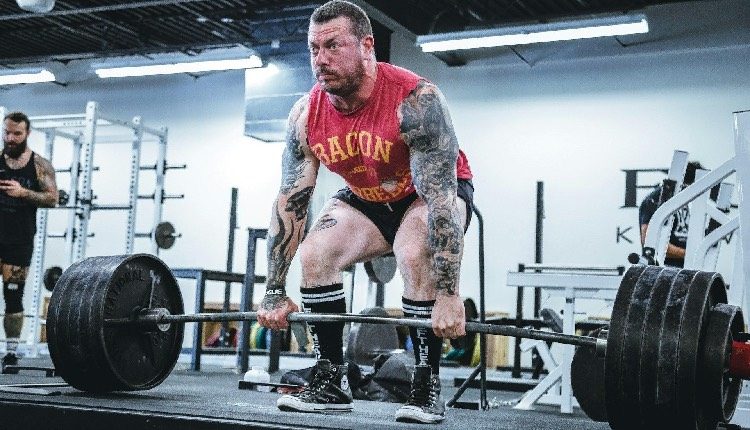Deadlifts are often referred to as the king of all exercises. This compound movement engages multiple muscle groups, enhances strength, and offers a plethora of health benefits. Whether you are a beginner in strength training or an experienced lifter, incorporating deadlifts into your fitness routine can be a game-changer. In this detailed guide, we will explore the benefits of deadlifts and why they should be a staple in your workout regimen.
1. Full-Body Engagement
Deadlifts are one of the few exercises that activate nearly every muscle in the body. The primary muscles worked include:
Posterior chain: Hamstrings, glutes, and lower back
Core muscles: Abdominals and obliques
Upper body: Traps, lats, and forearms
Leg muscles: Quadriceps and calves
Since deadlifts recruit multiple muscle groups, they help build overall strength and muscular coordination, making them an efficient full-body workout.
2. Strengthens the Posterior Chain
The posterior chain consists of muscles running along the back of the body, including the lower back, glutes, and hamstrings. Strengthening these muscles enhances athletic performance, improves posture, and reduces the risk of lower back pain. Many sports and daily activities rely on a strong posterior chain, making deadlifts a functional exercise for everyone.
3. Improves Core Stability and Posture
Deadlifts require significant core engagement to maintain balance and stability. A strong core not only helps in lifting heavier weights but also supports better posture. Poor posture can lead to back pain and spinal issues; regular deadlifting helps counteract the effects of prolonged sitting and slouching.
4. Boosts Functional Strength
Unlike isolated exercises, deadlifts mimic real-life movements such as lifting heavy objects off the ground. This makes them incredibly practical for improving functional strength, making everyday activities—like carrying groceries, lifting furniture, or playing sports—easier and safer.
5. Increases Grip Strength
Grip strength is crucial for many physical activities and sports. Since deadlifts require you to hold onto a heavy barbell, they naturally strengthen the hands, wrists, and forearms. Improved grip strength translates to better performance in exercises like pull-ups and rows, as well as enhanced dexterity for daily tasks.
6. Enhances Hormonal Release
Heavy compound exercises like deadlifts stimulate the production of essential hormones, such as:
Testosterone: A key hormone for muscle growth, fat loss, and overall strength
Growth hormone: Promotes muscle recovery and development
Endorphins: The “feel-good” hormones that reduce stress and boost mood
The hormonal benefits of deadlifting contribute to faster muscle growth, improved recovery, and enhanced overall well-being.
7. Increases Bone Density and Joint Strength
Strength training exercises, including deadlifts, put stress on bones, which stimulates bone growth and increases bone density. This is especially important for preventing osteoporosis and reducing the risk of fractures. Additionally, deadlifts strengthen ligaments and tendons, reducing the likelihood of joint injuries.
8. Burns More Calories
Deadlifts engage multiple muscle groups, which increases calorie expenditure during and after the workout. Compared to isolation exercises, compound lifts like deadlifts require more energy, making them an effective way to burn fat and support weight management goals.
9. Enhances Athletic Performance
Athletes from various sports incorporate deadlifts into their training to improve power, speed, and explosiveness. The strength gained from deadlifts enhances performance in activities like sprinting, jumping, and tackling, making it a valuable exercise for football players, runners, and martial artists.
10. Prevents and Reduces Back Pain
While improper form can lead to injury, performing deadlifts correctly strengthens the lower back and reduces the risk of chronic back pain. A strong lower back supports the spine, improving overall spinal health and reducing discomfort associated with prolonged sitting or poor posture.
11. Improves Cardiovascular Health
Though primarily a strength-building exercise, deadlifts also provide cardiovascular benefits. Lifting heavy weights increases heart rate and improves blood circulation, contributing to better cardiovascular health over time.
12. Builds Mental Toughness
Deadlifts challenge both the body and the mind. Lifting heavy weights requires focus, determination, and mental resilience. Overcoming the challenge of deadlifting builds confidence and instills a strong work ethic that translates into other areas of life.
13. Reduces the Risk of Injury
By strengthening the muscles, tendons, and ligaments, deadlifts help prevent injuries related to weak or imbalanced muscles. A strong lower back, core, and posterior chain reduce the risk of strains, sprains, and falls.
14. Versatility: Various Deadlift Variations
There are multiple variations of the deadlift to suit different fitness levels and goals, including:
Conventional Deadlift: Targets the entire posterior chain
Sumo Deadlift: Reduces lower back stress and emphasizes glutes and quads
Romanian Deadlift: Focuses on hamstrings and glutes
Trap Bar Deadlift: A beginner-friendly option that reduces spinal stress
Single-Leg Deadlift: Improves balance and targets stabilizing muscles
This versatility allows individuals to modify their training based on specific needs and fitness levels.
15. Increases Confidence and Motivation
There’s something incredibly empowering about lifting heavy weights. Achieving personal records in deadlifts boosts self-confidence and provides a sense of accomplishment, motivating individuals to push their limits in training and life.
Conclusion
Deadlifts are a powerhouse exercise that delivers countless benefits, from building strength and improving posture to enhancing athletic performance and promoting long-term health. Incorporating deadlifts into your workout routine can transform your fitness journey and improve your overall quality of life. Whether you’re an athlete, fitness enthusiast, or someone looking to improve daily functionality, deadlifts should be an essential part of your strength training program.
By learning the correct form and progressively increasing weight, you can safely and effectively enjoy the numerous advantages that deadlifts offer. So, grab that barbell, maintain proper form, and start reaping the incredible benefits of deadlifts today!


Comments are closed.